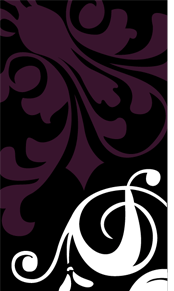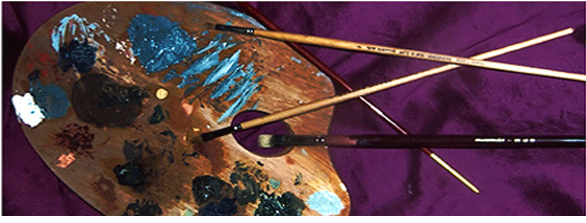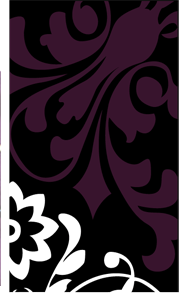Vincent Van Gogh(1853-1890)Was the son of a Dutch pastor. Vincent van Gogh was first employed in The
Hague, London and Paris by the picture dealers for whom his brother Theo worked.
He then taught in two English schools, worked in a bookshop in Holland, began
studying for the Church, and became a missionary in the coalmining district of
the Borinage in Belgium, where he shared the poverty and hardships of the
miners. Vincent van Gogh did not begin to become an artist until he was living
in great poverty after his dismissal from the mission in 1880, and from then
until 1886 he lived variously at Brussels, The Hague and Antwerp, teaching
himself to draw and paint, with occasional lessons in Brussels and at the
Academy in Antwerp, which appear to have contributed little to his development.
In 1886 Vincent van Gogh joined Theo in Paris and immediately came into contact
with the works of the Impressionists, which Theo endeavored to sell in the
gallery devoted to modern art that he directed. Vincent van Gogh met
Toulouse-Lautrec, Pissarro, Degas, Seurat and Gauguin, and in 1888 went to Arles
where he was later joined by Gauguin. In December 1888 he became insane, which
resulted in the famous incident with his ear, and from then until his death he
suffered intermittent attacks of mental trouble. During the intervals between
them he continued to paint, both in the asylums and after his removal to Auvers,
where, in July 1890, Vincent van Gogh shot himself.
Van Gogh's Dutch period is characterized by his use ofdark color, heavy
forms, and subject matter chiefly drawn from peasants and their work. He ignored
Theo's advice to lighten his palette as the Impressionists were doing, but
during his short stay in Antwerp he became more interested in Japanese prints
and the work ofRubens. Afterhis arrival in Paris a complete change took place in
his palette and subject matter; he adopted the Impressionist technique, leaning
briefly towards the pointillism ofSeurat, and turned to flowers, views ofParis,
and portraits and self-portraits which enabled him to experiment with these new
ideas. Afterhe went to Aries, Vincent van Gogh painted many landscapes and
portraits in heightened color and with a vivid, passionate expression of light
and feeling. His paintings done at St Remy and Auvers are vivid in color and
with writhing, flame-like forms in the drawing, completely expressive ofhis
tormented sensibility. His greatest influence was on ~Munch and the German
Expressionists.
Vincent van Gogh’s famous oil paintings include:
- A Wheat Field
- Landscape with Olive Trees
- Crows over the Wheat Field
- The Cafe Terrace
- Vase with Irises against a Yellow Background
- Vincent's Bedroom in Arles
- Wheat Field with Cypresses
- Irises
- Vase with Twelve Sunflowers
- La Mousme
- Self-Portrait
- The Orchard
- Fishing Boats on the Beach at Saintes-Maries
- The Zouave
- Oleanders
- The Chair and the Pipe
- The Starry Night
- Pieta
|




